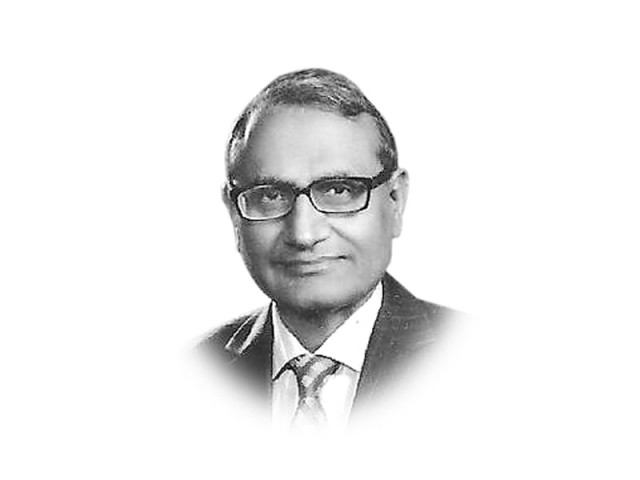Retired hurt by the rupee
Mr Dar sees the importance of reserves, but unrealistically expects an improvement in three to four months.

pervez.tahir@tribune.com.pk

Yasin Anwar is probably the worst State Bank governor ever, appointed with a clear understanding to accommodate the fiscal profligacy of the outgoing government and to prevent rupee depreciation by consuming the already declining foreign exchange reserves. Foreign inflows were discouraged by keeping the interest rate low. That said, one cannot endorse the blatant attempt at dictation by a government that has committed to the IMF to amend the State Bank Act to ensure its autonomy by the end of March 2014.
The press release further states that “the recent pressure on the exchange rate, particularly higher premium between inter-bank and open markets, is primarily due to the shortage of dollar notes”. Whether or not it is related to the suspension of the licence of an exchange company by the State Bank on November 28 remains to be seen. But it is certainly not related to any theory or practice. Market determination of the exchange rate replaced the fixed exchange rate regime precisely because of latter’s vulnerability to speculative attacks. However, in practice, the market determination has not witnessed complete insulation from speculation. Similarly, reserve accumulation, a feature of the fixed exchange rate regime, continues to play a significant role in currency stability. However, speculation can only make a crisis worse; it cannot be the primary cause of the crisis. Mr Dar sees the importance of reserves, but unrealistically expects an improvement in three to four months. On November 22, these reserves stood at 3,463.7 million dollars. An idea of the vulnerability is given by the fact that imports in October alone were 3,281 million dollars. There is a serious imbalance not only in the current account, but also the capital account. What the finance minister believed to be firm commitments of the international financial institutions and friendly countries in the first 12 months have not materialised. The IMF commitments are back-loaded. In addition, the IMF programme requires the State Bank to buy rather than sell dollars. It also monitors net international reserves, which is the difference between usable gross international reserve assets and reserve-related liabilities. For December, the IMF projected the former at 5,328 million dollars and the latter at negative 2,090 million dollars. These projections are unlikely to be realised. Thus begins our winter of discontent, unless a combination of import compression and capital controls are put in place.
The external sector has been the undoing of the PML-N in the past. The yellow cabs in the first tenure and the foreign currency deposits in the second caused a crisis in the balance of payments. A news item in this paper suggests that the prime minister is considering lessening the burden of his finance minister. In the public eye, he is already retired — hurt by the rupee.
Published in The Express Tribune, December 6th, 2013.
Like Opinion & Editorial on Facebook, follow @ETOpEd on Twitter to receive all updates on all our daily pieces.



















COMMENTS
Comments are moderated and generally will be posted if they are on-topic and not abusive.
For more information, please see our Comments FAQ